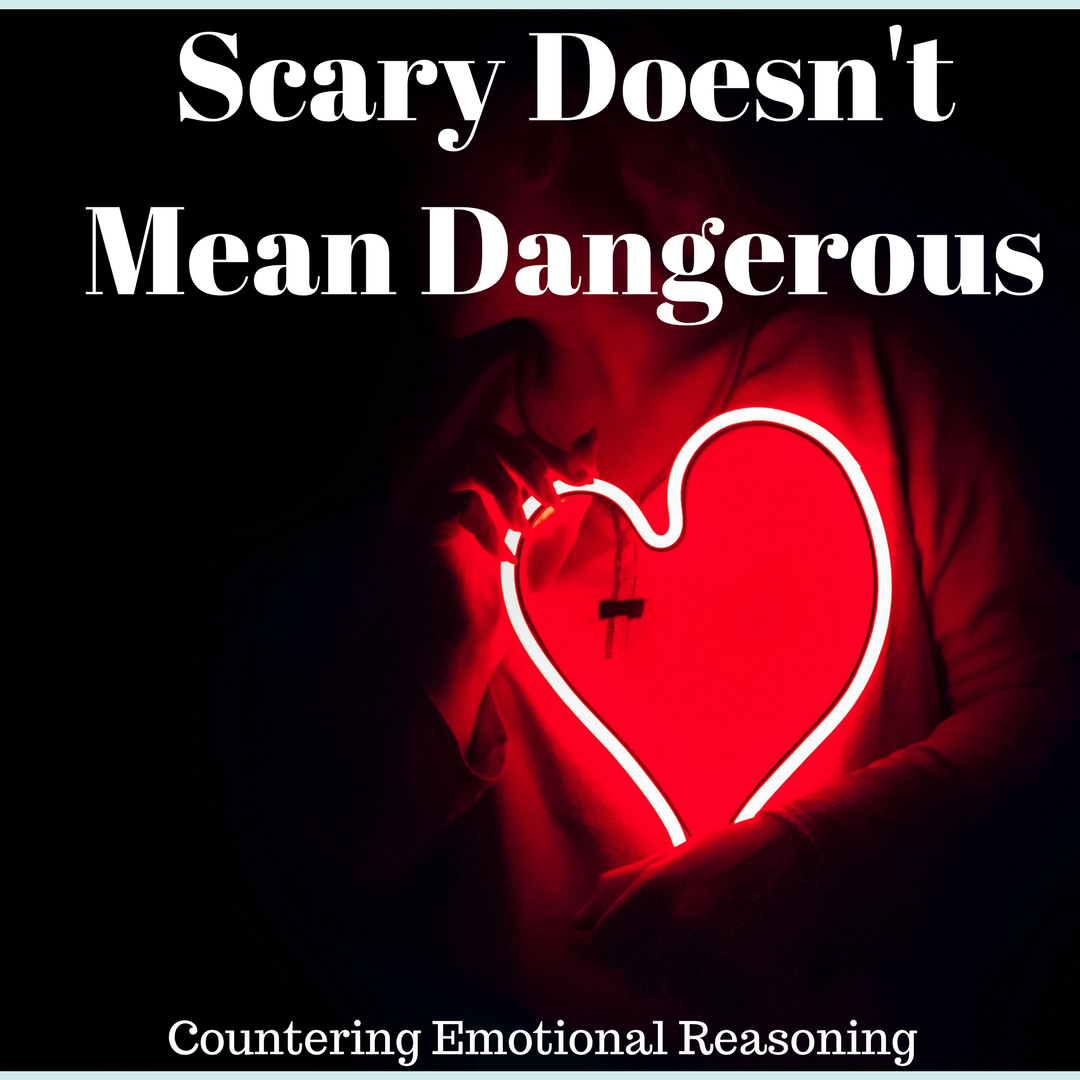My five year-old is in a phase of being afraid of monsters in his room (conveniently only when he has to put away his laundry, but that’s another matter). He wants his mom or dad to go with him upstairs because he’s scared the monsters will “gobble me up”, and at first would refuse to go up by himself.
This illustrates how many of us respond to scary situations of our own: we respond to our fear response by moving away from the scary situation to one in which we feel safe. For example, if I’m afraid of flying and am concerned the plane will crash, I avoid flying (and in many cases, anything related: videos and photos of planes, and for some who come into the office even the word “airplane”). It makes me feel scared, so I move away, and I feel safer and more relaxed.
However, note that nowhere in the above example is there any discussion of how safe planes actually are, just that I feel better if I’m not thinking or moving towards getting on a plane.
- Feeling scared about the situation is not the same as the situation being dangerous.
- Will the plane crash just because I feel scared that it will?
- When building a plane, do designers take in account the effects of people being scared in the same way they consider aerodynamics in the airworthiness of the aircraft?
- Will the plane fly better if I’m more confident it’s safe?
Just like with my son, it’s not about how I feel, it’s about the facts. If he’s more scared, does that increase the likelihood of monsters in his room, or if he’s not scared, the monsters go away?
In our treatments, we focus on how to rely on our facts while acknowledging our emotions. Our emotions inform our decisions, not make them.

